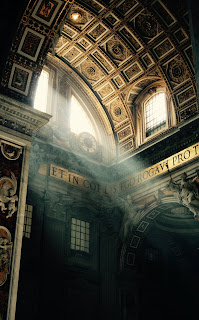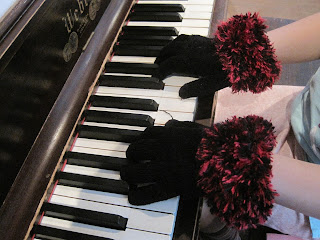What Happens When Your Church Music Becomes Unsingable
The Middle Ages produced some hauntingly beautiful music. Because most of the literacy and education was under the umbrella of the Roman Catholic church, some of the most beautiful musical works of that time were sacred pieces.
There was just a slight problem with their music.
Towards the end of the Middle Ages, in their motets, multiple song lyrics were overlapped and sung simultaneously. On top of that, the lyrics that were genuinely sacred were written in Latin, a language that few read or understood. And sometimes, sacred and secular were combined -- the sacred in Latin, the secular in the vernacular. As you can imagine, this made it nearly impossible to decipher what was being sung. You couldn't understand it. And you certainly couldn't sing along -- congregational singing wasn't even a thing back then!
Scripturally, the Bible has a lot to say about singing. My favourite is a verse in Colossians 3:16:
"Let the word of Christ dwell in you richly in all wisdom; teaching and admonishing one another in psalms and hymns and spiritual songs, singing with grace in your hearts to the Lord."
From this verse and many others, we see that God intended singing to be an integral part of a Christian's life, not something intended for an elite group of professionally-trained people. It's meant as a tool to praise God and encourage and teach each other.
As the Reformation began its tidal sweep of Europe, how did others react to the music of their time?
Some, apparently, thought that the solution was to have no church music whatsoever. As one person put it, "It was a reaction to the pitfalls of their time period."
Martin Luther, while he had many quirks and some un-Scriptural beliefs and practices, led the way in what I believe to be a Biblical reform. Among his reforms was replacing the elaborate music of the Middle Ages with hymns. These tunes were easy to sing, and had their lyrics in the vernacular language.
I believe that there is a place for elaborate beauty in our music. Oratorios like Handel's Messiah and cantatas like Bach's Cantata No. 80 can do great things to lift our souls heavenward. And it's a topic I'd like to explore further in the future, personally and on my blog. But I also believe that we need to have accessible music, music that is easy to remember and sing, that can serve as an outlet in times of joy or a comfort in times of distress.




Comments
Post a Comment